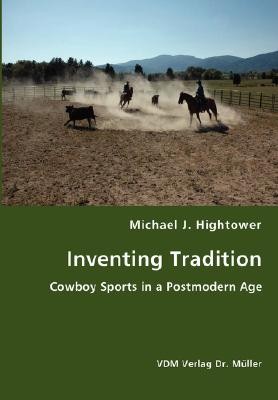
- We will send in 10–14 business days.
- Author: Michael J Hightower
- Publisher: VDM Verlag Dr. Mueller E.K.
- Year: 2008
- Pages: 204
- ISBN-10: 383643699X
- ISBN-13: 9783836436991
- Format: 17 x 24.4 x 1.1 cm, softcover
- Language: English
- SAVE -10% with code: EXTRA
Reviews
Description
As a one-time working cowboy in the American Southwest, the author was intrigued to find cowboy sports in his adopted state of Virginia. Blending scholarship and horsemanship, he competed in dozens of cowboy contests and collected data on a group whose members (himself included) he dubbed "Old Dominion cowboys." Through a close reading of his fieldnotes, he identified themes that emerge from a typical day of penning, sorting, and cutting cattle. He analyzes these themes in the context of frontier history, identity formation, the Western genre of entertainment, social memory studies, and sport sociology, all in an effort to situate cowboy sports in a cultural and historical context. Dr. Hightower frames these rowdy sports as frontier relics that were appropriated and modified by turn-of-the-twentieth-century cultural leaders to mitigate the disruptive effects of modernity. Cowboy sports thus fall under the rubric of invented tradition. Today, they serve as avenues of identity formation and cultural expression in ways that are both representative of and resistant to postmodernity.
EXTRA 10 % discount with code: EXTRA
The promotion ends in 18d.03:46:50
The discount code is valid when purchasing from 10 €. Discounts do not stack.
- Author: Michael J Hightower
- Publisher: VDM Verlag Dr. Mueller E.K.
- Year: 2008
- Pages: 204
- ISBN-10: 383643699X
- ISBN-13: 9783836436991
- Format: 17 x 24.4 x 1.1 cm, softcover
- Language: English English
As a one-time working cowboy in the American Southwest, the author was intrigued to find cowboy sports in his adopted state of Virginia. Blending scholarship and horsemanship, he competed in dozens of cowboy contests and collected data on a group whose members (himself included) he dubbed "Old Dominion cowboys." Through a close reading of his fieldnotes, he identified themes that emerge from a typical day of penning, sorting, and cutting cattle. He analyzes these themes in the context of frontier history, identity formation, the Western genre of entertainment, social memory studies, and sport sociology, all in an effort to situate cowboy sports in a cultural and historical context. Dr. Hightower frames these rowdy sports as frontier relics that were appropriated and modified by turn-of-the-twentieth-century cultural leaders to mitigate the disruptive effects of modernity. Cowboy sports thus fall under the rubric of invented tradition. Today, they serve as avenues of identity formation and cultural expression in ways that are both representative of and resistant to postmodernity.


Reviews